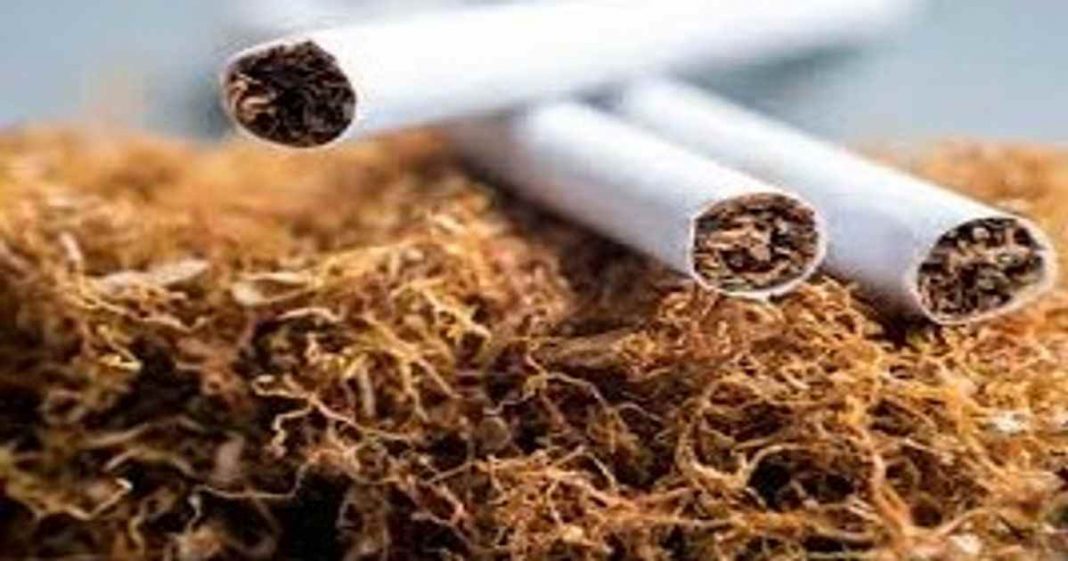Pakistan is among one of the largest consumers of tobacco in the world. The Demographic and Health Survey 2017-18 revealed that more than 19 percent of the population consumed tobacco or tobacco products.
Amongst them, millions of young people – the future of our country – are hooked on narcotics abused through cigarettes. The consumption of cigarettes is one of the leading causes of deadly health conditions such as cancer, stroke, cardiovascular and respiratory diseases.
Tobacco is smuggled in large quantities in Pakistan and many products available in the market are untaxed and unregulated, with no health warnings, packaging, or labeling requirements. This makes them cheaper, more readily available, and accessible, especially to young and poor people.
Read more: Increase in infant health inequality: What is Pakistan doing about it?
Mainly, these smuggled items are for local brands to target people falling in low-income bracket status and this tobacco is more hazardous for health. In villages, hukah is more popular but it also a much more dangerous mode of tobacco consumption. Their rampant illicit trade is not possible without political patronage and control of the law enforcement agencies through pressure tactics and bribery.
Impact of illicit trade
Affordability and accessibility lead to increased use. This downward spiral into poverty and illness because of money spent on tobacco, and additional money spent on treating tobacco-induced diseases has dire health and economic consequences.
The demand for illicit cigarettes is mainly driven by the wide price gap between the legal and illegal varieties. Tax evaded cigarettes are easily available for less than the minimum selling price but there has been no action from the authorities.
Read more: No sin tax on cigarettes: A win for the tobacco lobbyists?
Because of the illicit trade, the Federal Board of Revenue loses out on billions of rupees in revenue collection. Moreover, the data given by tobacco product sellers to the Regional Tax Offices are often underreported.
The system needs innovative IT-based solutions so to eliminate human intervention and malpractices. FBR proposed a track and trace system that would help in confiscating illegal products and also track down the players involved.
And the tobacco industry markets flavored tobacco products as alternative to conventional cigarettes.. their flavors target youth, addicting them to nicotine, leading to cigarette smoking in the later stages. https://t.co/CXtAXIwRDI
— Anti Tobacco Forum Pakistan (ATFP) (@Antitobacco_pak) February 9, 2021
Ways to reduce tobacco consumption
There are several laws and policy frameworks to bring down tobacco consumption and smuggling however, implementation and enforcement is a big challenge. Better training and equipment are required to successfully curb illegal activities. Bribery and corruption also play a huge role in malpractices and that also needs to be tackled through wider reforms.
Another solution is to properly monitor Green Leaf Threshing units (GLTs) and taxing them. Only 10 GLTs provide supplies to cigarette manufacturers in the country and if the government authorities are willing to carry out their responsibilities then the entire industry can be brought under the tax net. Moreover, supplies to unregistered tobacco product manufacturers can be blocked as well.
Read more: Cheaper brands of cigarettes to get a tax slap
There are a number of regulatory and legislative measures to address illegal trade and reduce tobacco consumption. Strong tax administration is needed to oversee the entire industry and the adoption of IT-based solutions can help improve the performance of tax departments.
The law enforcement and auditing agencies should be forced into action with better training and incentives. There is also a need to provide legal protection to whistleblowers who report illicit business activities. In addition, the health ministry should prohibit all kinds of advertising, promotions, and sponsorship of tobacco products while hazards of smoking should be included in the school curriculum.
The lawmaking bodies need to understand the wide-ranging consequences of neglecting the illegal tobacco trade and growing consumption. Legislation of health tax on cigarettes and earnings from that could be used by the health ministry on welfare projects.
Read more: Taxation on Cigarettes proposed at 75% does it make sense?
Need for effective laws
Many countries have imposed sin tax on tobacco and alcohol and the United Kingdom in 2018 imposed Soft Drinks Industry Levy that purports to put a charge of 24p on drinks containing 8g of sugar per 100ml and 18p a liter on those with 5-8g of sugar per 100ml, directly payable by manufacturers to Her Majesty’s Revenue and Customs.
By following the guidelines of international organizations such as WHO and World Bank, the authorities can place themselves in a better position to secure technical and financial support from them.
Read more: World Health Organization Urges Countries to Tax Sugary Drinks to Fight Obesity
We should make similar laws so that we have taxes sufficient to be collected and diverted towards improving the healthcare system and meet catastrophes like Covid-19 Pandemic. Additional funding will also help the government launch awareness programs that can also cover nicotine dependence.
Eliminating or at least reducing illegal tobacco consumption is critical for ensuring a healthy society. There are various government bodies that can play their part in controlling the illegal trade of tobacco. If the rulers are serious regarding the future of this country then they should also strictly monitor the performance of regulatory authorities and public representatives.
Kainat Saif is a law student and is actively engaged in community welfare projects. Her key areas of interest are diplomacy, policymaking, legal drafting, and social justice. She can be reached at kainatsaif02@gmail.com. The views expressed in the article are the author’s own and do not necessarily reflect the editorial policy of Global Village Space.














